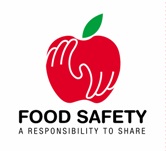
Food safety is pretty high on everyone's list of "things to be aware of," especially in light of the recent food poisoning inscidents in Dubai. Media has been talking about the role of the enforcement agencies, but belive it or not, a good deal of food poisoning is caused by improper food handling by consumers.
Let's us look at an organism that Dubai food safety circle never talks about - Listeria Monocytogenes. We do not really know about the prevalence of the organism in Dubai because this is not an organism that our routine microbiological tests cover. Hospitals don’t test for the organism, so we do not know whether people are affected by this organism. What we know is that cold food is very popular in Dubai and Listeria Monocytogenes, an environmental pathogen, are bacteria that can cause a serious illness called listeriosis. These bacteria are found widely in nature and can be transmitted through food. Ready-to-eat products, such as deli meats and salads, cooked poultry products, smoked seafoods, soft cheeses and foods with a long refrigerated shelf life are often linked to outbreaks of Listeria. Once food is contaminated with Listeria the bacteria multiply quickly, even at the recommended refrigeration temperatures of 2 - 4ºC.
Why Should Dubai worry about Listeria Monocytogenes?
Look at our supermarkets; Aren’t we seeing more and more chilled food counters? Aren’t we seeing more salads, cold sandwiches and cold cut meat?
Our shops offer a variety of soft cheeses and other milk products that are known to be sources of Listeria M.
How about our weather? It is 45 ºC outside and any one who buys cold food exposes the food to this temperature for at least an hour. Many food safety experts recommend that cold food exposed to warm conditions for more than an hour should not be eaten!
Who is at risk of Listeria infection?
Listeria infection can affect people differently. Healthy people may develop few or no symptoms. However, for some people, the infection can be serious enough to require hospitalisation and be a threat to life.
People who are at particular risk of infection include:
Anyone whose immune system has been weakened by disease or illness, for example:
Cancer
Leukaemia
Diabetes
AIDS
Liver or kidney disease
The elderly
Pregnant women and their unborn babies
Anyone on medication such as prednisone or cortisone as this can also suppress the immune system. This includes organ transplant patients.
Newborn babies
Recommendations:
Wash raw vegetables thoroughly before eating.
Avoid raw (unpasteurized) milk or foods made from raw milk.
Keep cold foods cold at or below 4.4oC). Do not keep them out for longer than two hours at room temperature before eating.
Read and follow label instructions to "keep refrigerated" and use by a certain date mentioned on the label.
Additional recommendations to high-risk individuals:
Avoid soft cheeses such as Feta, Brie, Camembert, and blue-veined cheeses. There is no need to avoid hard cheeses, cream cheese, cottage cheese, or yogurt.
"Left-over" foods or "ready-to-eat" foods such as hot dogs, should be reheated until steaming hot before eating. Avoid microwave preparation of these foods.
Although the risk of listeriosis associated with foods from delicatessen counters is relatively low, high risk individuals such as pregnant women and immuno-suppressed persons may choose to avoid these foods or to thoroughly reheat cold cuts before eating.


No comments:
Post a Comment